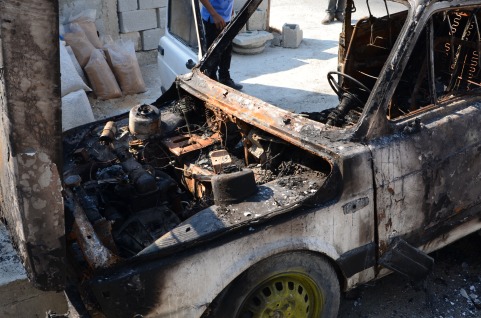Tag: Huwwara
-
Cars burnt by settlers in Huwwara
2nd October 2013 | International Solidarity Movement, Nablus Team | Huwwara, Occupied Palestine In the early hours of 1st October settlers from the settlement of Bracha set fire to two cars parked outside the house of Edrees Shehadeh in Huwwara. This attack forms part of a sustained campaign of intimidation against the village, which includes…
-
Israel shifts Oslo accord borders to continue to prevent Palestinians from using their land and building homes
10th August 2013 | International Solidarity Movement, Nablus Team | Huwwara, Occupied Palestine Maher from the village of Huwwara close to Nablus, is one of many Palestinians who has been tricked into thinking that Palestinians have the power to issue building permits in areas labelled as ‘B’ under the Oslo accords. Maher owns land designated…
-
Bedouin in the West Bank: Settler attacks, denial of water
31st July 2013 | International Solidarity Movement, Nablus Team | Huwwara, Occupied Palestine In Huwwara, 9km south of Nablus there are two Bedouin families who have been living in tents with their animals since the start of June. They are usually camped near Hebron or in the Naqab desert, but for the summer they are…

